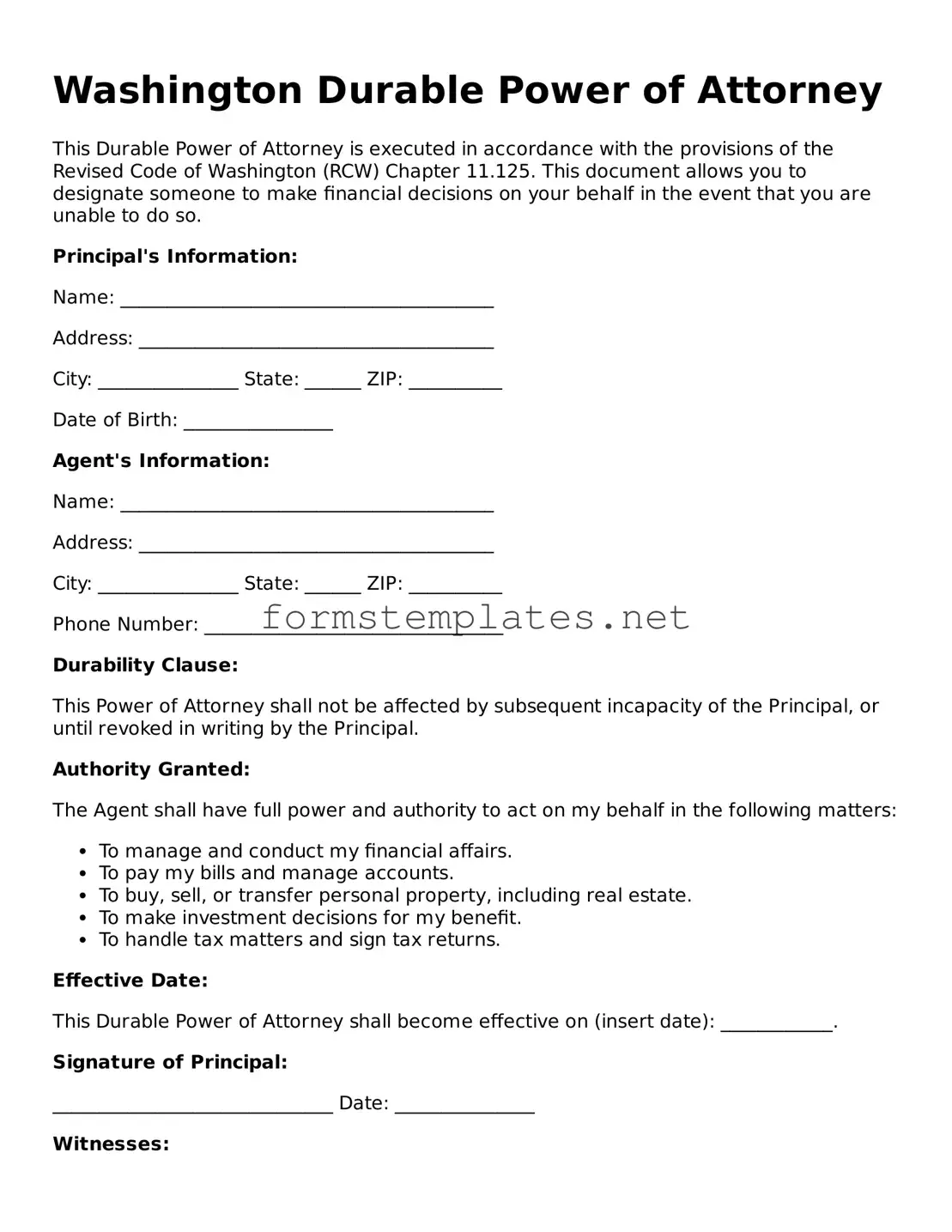Attorney-Approved Washington Durable Power of Attorney Template
A Washington Durable Power of Attorney is a legal document that allows an individual, known as the principal, to designate another person, referred to as the agent, to make decisions on their behalf. This authority remains effective even if the principal becomes incapacitated, ensuring that their financial and legal matters can be managed seamlessly. Understanding the nuances of this form is essential for anyone considering delegating decision-making powers to a trusted individual.
Open Editor Now

Attorney-Approved Washington Durable Power of Attorney Template
Open Editor Now

Open Editor Now
or
⇓ PDF Form
Your form still needs attention
Finalize Durable Power of Attorney online — simple edits, saving, and download.